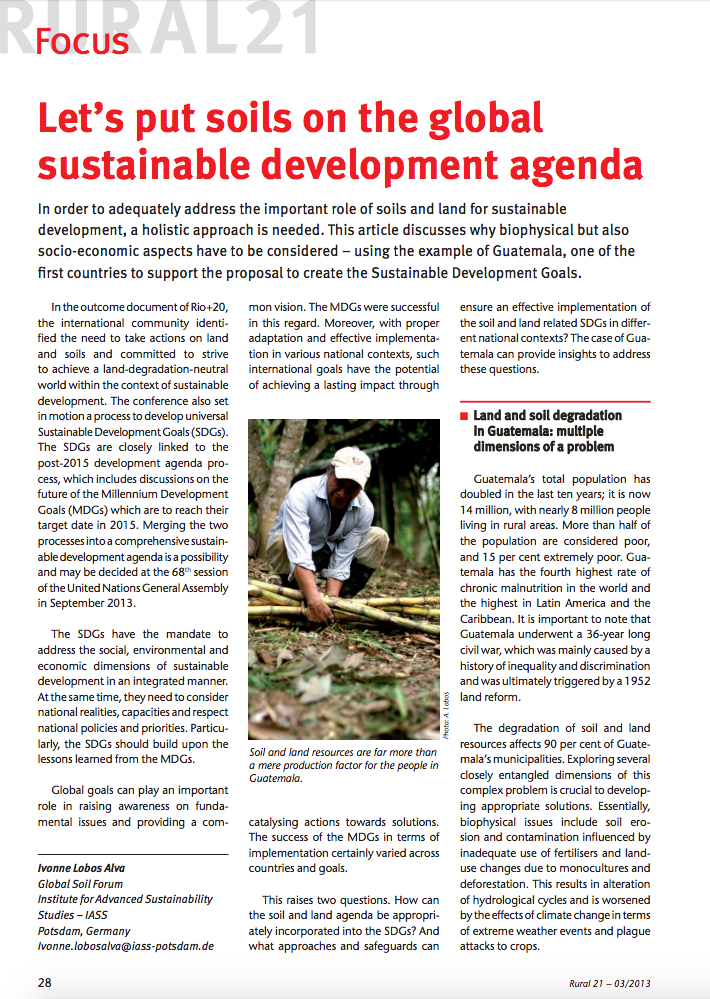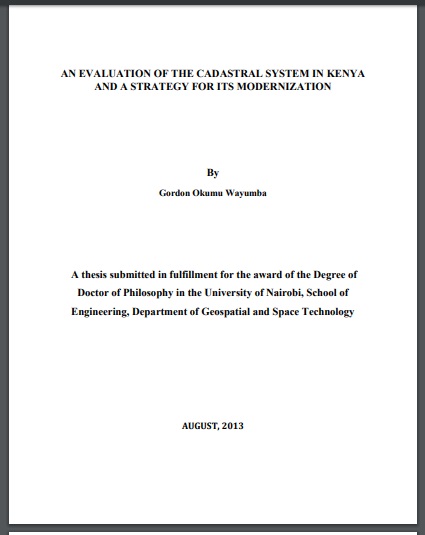UNCCD – the accord for global land stewardship
With more than 900 million people world-wide affected by chronic hunger, international action on soil conservation is urgently required. The United Nations Convention to Combat Desertification (UNCCD) enjoys substantial support, and the author of this article demonstrates that it could play a key role as a global policy and monitoring framework in addressing land and soil degradation.





